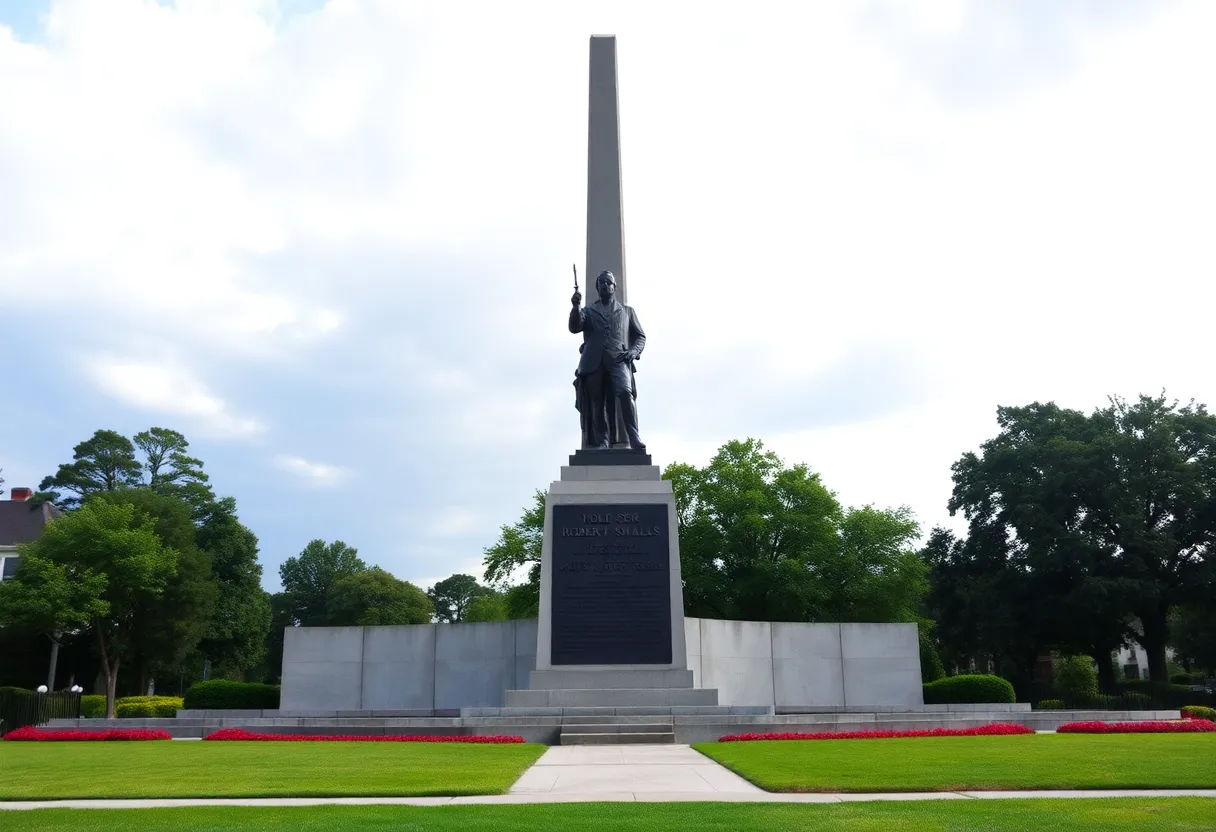Columbia Honors Robert Smalls with Planned Monument
Columbia, South Carolina – South Carolina is set to honor Robert Smalls, a renowned figure who escaped slavery to become a notable Civil War hero and lawmaker. This initiative, which will result in the first monument dedicated to an individual Black figure at the South Carolina State House, is in the planning stages with a special committee tasked to finalize the details by January 15.
Legislative Support and Planning
Earlier this year, lawmakers unanimously passed a bill to establish this statue. The dedicated commission responsible for the project must identify a suitable location on the State House lawn, determine the design of the statue, and secure funding, which must come exclusively from donations. The statue is required to be completed by 2028.
Republican State Senator Chip Campsen emphasized Smalls’ positive legacy during a recent commission meeting, stating, “He’s someone that all South Carolinians can and should respect. He had a lot that he could be bitter about, but he did not. He set a course for the remainder of his life to try to make South Carolina a better place for all people of all races.”
A Shift in Commemoration
The current lawn of the South Carolina State House features numerous memorials that celebrate the Confederacy, including statues of notable figures such as Confederate General Wade Hampton and a marble copy of the Articles of Secession. Among these, the 2001 unveiling of the African American History Monument, designed by Black artist Ed Dwight, stands out as a critical acknowledgment of Black residents’ contributions to South Carolina. This monument features 12 panels of relief sculptures that depict important narratives from 1619 to the present day.
The Life of Robert Smalls
Born into slavery in 1839 in Beaufort, South Carolina, Smalls’ life took a dramatic turn during the Civil War. In 1862, while enslaved on the Confederate transport ship Planter, Smalls seized an opportunity to escape. When the crew left the ship for an evening in Charleston, Smalls disguised himself in a captain’s uniform. Using hand signals and strategic communication, he navigated through Confederate checkpoints and delivered the vessel—and its passengers—to Union forces.
This audacious act was not only pivotal in his own life as it led to his freedom, but it also earned him recognition and acclaim in the North. He became a military hero, eventually promoted to captain and commander of the Planter.
Political Legacy
After the war, Smalls continued to make a difference. He purchased his former enslaver’s mansion in his hometown and went on to establish a successful career in politics. He served in both the South Carolina House of Representatives and the Senate before being elected to the United States Congress. His political efforts were instrumental in drafting South Carolina’s Reconstruction-era constitution, bolstering public education, and fighting for equality.
Community Reaction
The decision to honor Smalls is viewed as long overdue by many. Democratic State Representative Jermaine Johnson reflects this sentiment, stating, “The man has done so many great things. It’s just a travesty he has not been honored until now.” He added that Smalls’ life story deserves more recognition, perhaps even a feature film to share his remarkable journey.
As the state moves forward with commemorating Robert Smalls, plans for the statue symbolize not just his individual achievements but also a broader recognition of Black history and contributions to South Carolina and the nation.







